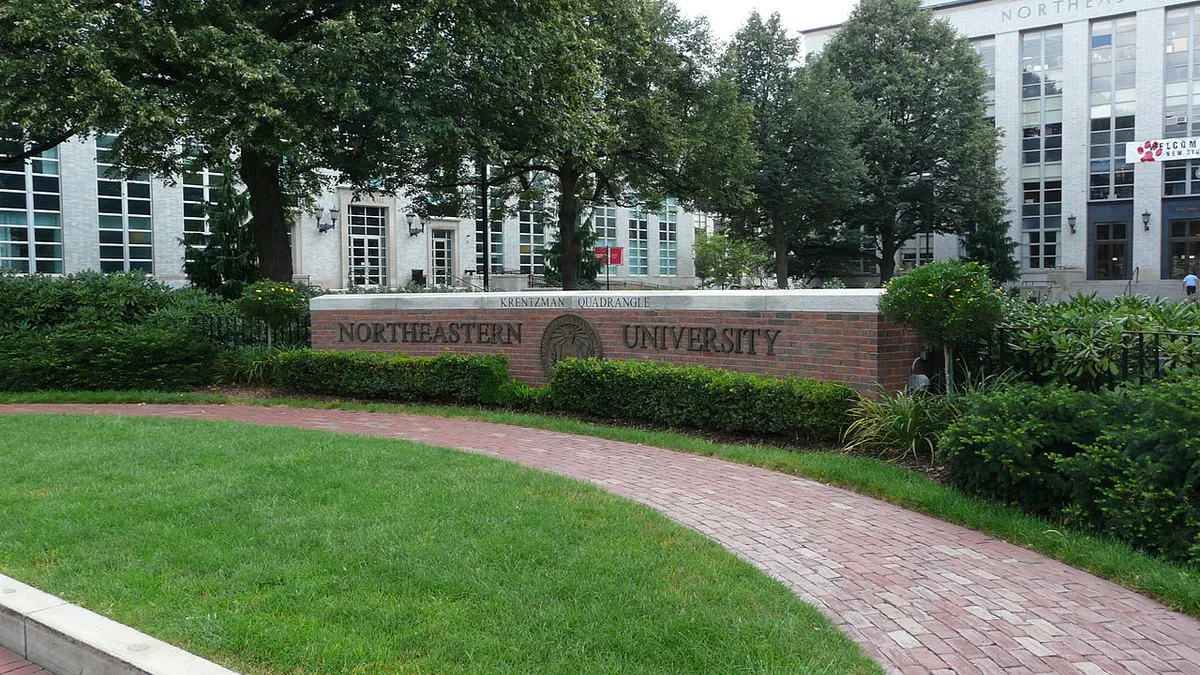Dive Brief:
-
Northeastern University plans to buy the New College of the Humanities, a private institution in London that enrolls roughly 200 students, The Wall Street Journal reported. Northeastern didn't disclose the terms of the sale.
-
The Journal called the acquisition "unusual" because the Boston-based university is purchasing an existing campus rather than building one anew, as has typically been the trend among U.S. colleges that expand abroad.
-
The purchase continues Northeastern's expansion into other regions and countries. It is building or already has campuses open in Seattle, San Francisco and Charlotte, North Carolina, as well as Vancouver and Toronto. It also has plans for international expansion in Asia.
Dive Insight:
International expansion is a hot topic for American universities, as they look for ways to compete in an increasingly global market for higher education. This comes amid a decline in international students attending U.S. colleges on domestic campuses.
The number of student visas issued fell 40% from its peak in 2015 to 393,573 in 2017, according to a report from the Pew Charitable Trusts' Stateline publication. Meanwhile, the Trump administration is planning to tighten rules that govern the duration of stay for some nonimmigrant visas, including F-1 student visas.
This is in addition to a policy shift this summer that changed how long nonimmigrant visa holders have to rectify their situation after they fall out of status. A lawsuit brought last month by four colleges notes that failing to update an address or having an error in their records can cause a student to fall out of status, and that the level of oversight needed to follow the new policy "increases the costs to students and imposes delay burdens."
The tightening of restrictions around immigration is one of several factors attributed to the decline in international students at U.S. colleges. Others include uncertainty about work opportunities after graduation, reduced scholarship programs by foreign governments and better educational opportunities in other countries.
U.S. colleges are investing in international campuses, with 77 branches operating or in development as of December 2017, an increase from 59 in 2005, according to data from the Cross-Border Education Research Team at the University of Albany, SUNY.
Establishing an international campus comes with several challenges, including managing differences in expectations around academic freedom. Administrators and faculty at a handful of U.S. branches or U.S.-chartered foreign colleges spoke with Education Dive earlier this year about the risks associated with those potential disparities. Exchange programs are subject to similar scrutiny, with Cornell University recently suspending two of theirs due to a restrictive environment that limited academic freedom.
Colleges considering expansion abroad should be able to point to reasons why a host country is a good fit for the programs they plan to offer there, as well as be able to sufficiently fund it in order to maintain academic standards. Student and faculty buy-in is also critical, especially as it pertains to how the university will reconcile its academic freedom policies with that of the host country.









